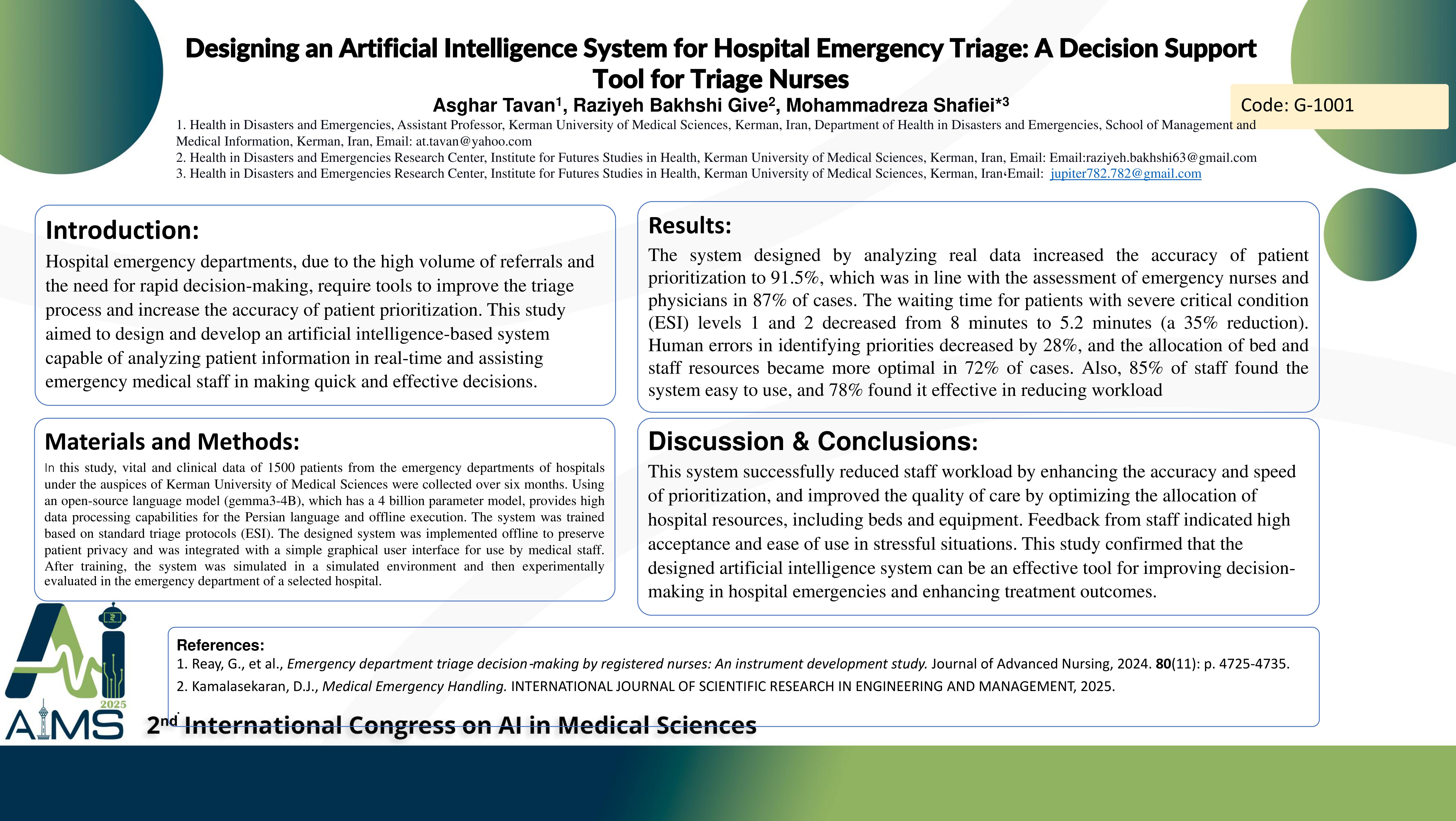Designing an Artificial Intelligence System for Hospital Emergency Triage: A Decision Support Tool for Triage Nurses
Code: G-1432
Authors: Asghar Tavan , Raziyeh Bakhshi Giv ℗, Mohammadreza Shafiei *
Schedule: Not Scheduled!
Tag: Intelligent Virtual Assistant
Download: Download Poster
Abstract:
Abstract
Background and aims: Hospital emergency departments, due to the high volume of referrals and the need for rapid decision-making, require tools to improve the triage process and increase the accuracy of patient prioritization. This study aimed to design and develop an artificial intelligence-based system capable of analyzing patient information in real-time and assisting emergency medical staff in making quick and effective decisions. Method: In this study, vital and clinical data of 1500 patients from the emergency departments of hospitals under the auspices of Kerman University of Medical Sciences were collected over six months. Using an open-source language model (gemma3-4B), which has a 4 billion parameter model, provides high data processing capabilities for the Persian language and offline execution. The system was trained based on standard triage protocols (ESI). The designed system was implemented offline to preserve patient privacy and was integrated with a simple graphical user interface for use by medical staff. After training, the system was simulated in a simulated environment and then experimentally evaluated in the emergency department of a selected hospital. Results: The system designed by analyzing real data increased the accuracy of patient prioritization to 91.5%, which was in line with the assessment of emergency nurses and physicians in 87% of cases. The waiting time for patients with severe critical condition (ESI) levels 1 and 2 decreased from 8 minutes to 5.2 minutes (a 35% reduction). Human errors in identifying priorities decreased by 28%, and the allocation of bed and staff resources became more optimal in 72% of cases. Also, 85% of staff found the system easy to use, and 78% found it effective in reducing workload. Conclusion: This system successfully reduced staff workload by enhancing the accuracy and speed of prioritization, and improved the quality of care by optimizing the allocation of hospital resources, including beds and equipment. Feedback from staff indicated high acceptance and ease of use in stressful situations. This study confirmed that the designed artificial intelligence system can be an effective tool for improving decision-making in hospital emergencies and enhancing treatment outcomes.
Keywords
Artificial Intelligence, Hospital Triage, Decision Support
